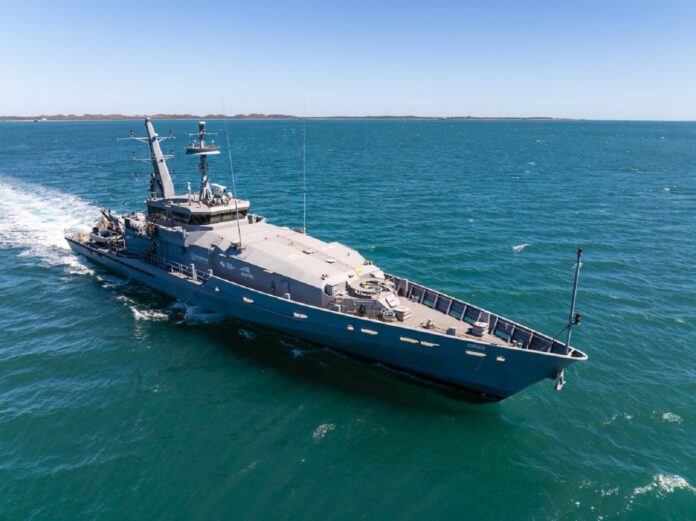Australian shipbuilder Austal has completed sea acceptance and endurance trials for the government-funded Patrol Boat Autonomy Trial (PBAT), the company announced on 23 April.
The remote and autonomous navigation trials used a testbed – the decommissioned Royal Australian Navy (RAN) Armidale-class patrol boat HMAS Maitland (renamed Sentinel) – and were conducted off the Western Australian coastline during March and April 2024.
The 57m-long Sentinel was extensively modified to support remote and autonomous operations, including enhancements to computing, communications, bilges, electrical and sensor systems.
Austal Australia noted that the trials used Greenroom Robotics’ Advanced Maritime Autonomy (GAMA) software for autonomous navigation of Sentinel with a number of project team members, observers and a crew from International Maritime Services (IMS) for observation and manual interventions.
According to the company, PBAT is a collaborative effort between Austal Australia, Greenroom Robotics, Trusted Autonomous Systems (TAS) and the navy’s Warfare Innovation Navy (WIN) branch to deliver a proof-of-concept demonstrator capable of optionally crewed or autonomous operations. The trial was also aimed at exploring the legal requirements of operating an autonomous vessel.
“Looking ahead, we are excited about the potential opportunities to work with Navy to further advance the autonomous technology demonstrated during the trial; on projects such as the Large Optionally Crewed Surface Vessels (LOSV), recently announced by the Australian Government as part of the Surface Combatant Fleet Review,” said Austal CEO Paddy Gregg.
Another objective of the PBAT initiative is to transfer the knowledge and experience gained on the application of remote and autonomous systems to the RAN’s current fleet, a move which could potentially reduce crew workload while enhancing operational safety.
“PBAT stands out not only for its demonstration of autonomous technology and its practical application to operational vessels, but also for the spirit of collaboration that underpinned its success,” said Commodore Michael Turner, Director General of WIN.
by Jr Ng











